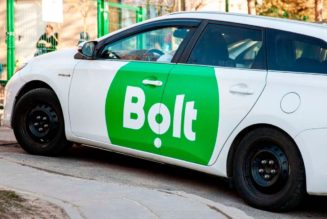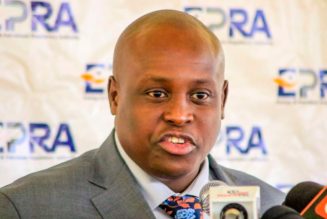Profiles
Jim Tozer: Kenchic boss born to farm
Friday August 04 2023

Kenchic Managing Director Jim Tozer poses for a photo at his office in Nairobi on July 26, 2023. PHOTO | LUCY WANJIRU | NMG
It is not surprising at all that Jim Tozer is here as managing director at Kenchic. Eighteen years with the company. It is not surprising because he comes from a long line of farmers, hundreds of years long, in the South West of the UK.
He grew up on a farm, among cows and things. His father worked with his hands from dawn to dusk. His mother stayed at home, raising the three of them. It was nice and idyllic, but Mr Tozer does not do nice and idyllic, he wanted more, to get out.
So he came to Africa, backpacked through countries, from Nairobi down to South Africa, young, curious and free, picking experiences and lessons along the way.
Eventually, you are who you are and the apple doesn’t fall too far from the tree even if that tree is in Africa.
He is where he loves to be running a successful poultry company. Mr Tozer is a farmer. Like the men before him. And the men before them.
What kind of childhood did you have? What springs to mind? What did you learn from your parents?
I had a great childhood. I grew up on a small farm right down in the South West of the UK, a dairy farm. There was freedom of the land and wandering around, shooting, fishing, hunting, and working on a farm from a very young age.
I wouldn’t say we had a lot of money. Our farm had 120 cows, which were big for a dairy in those days, but not necessarily from where I came from with other people around. We have 800 years of farming in my family. My mother was a housewife, she gave me a great moral upbringing and also a strong work ethic. Father was working a huge amount of hours; up at 4am, coming
in late. So I spent a lot of time with my mother at the time. But my father had a very strong sense of what was right and wrong, purpose and to work hard.
I just remember things being simple, long summers, you know, hot days and enjoying life. Had two sisters, played together, and went on holidays down to the beach. We weren’t very far from the coast. Lots of cousins and friends, aunts and uncles.
What would you say were the expectations of your parents for you, being the only son?
I came from a very traditional family where you would expect the son to inherit the farm. I didn’t want to do farming.
I wanted to go bigger although I had a wonderful life. I wanted to do more. I wanted to get away. I didn’t want to stay in my little village all my life. I recognised that from a young age.
One of my sisters stayed, the other one went to live in London and Bristol. My parents never set too many expectations on me but I recognised I wanted to be involved in agriculture.
And I think it was slightly because I came from a rich farming history. But I didn’t want to go directly into, you know, being a farm manager.
I went off, studied and got a degree in agricultural science and business. And then I wanted to go and work for some larger corporations in the agri sector and that is what I did afterwards.
For you to want more, for you to not just limit your life on the farm, there must have been some influences.
Yeah. There was a guy who was an agri-preneur, more than just a farmer, very successful, had a nice family, and looked at agriculture outside the traditional sort of confines and realms of what it is, what it was then.
What did you listen to on the farm, as a young lad? What was the soundtrack of your teenage years?
Oh gosh, I think just pop music when we were young. My father was a big country, western and classical, and opera, so I had a real mix.
I had two older sisters, so you always listen to the music of your sisters. So I can remember disco boogie stuff in the 70s, and then walking through into sort of the 80s.
What kind of teenager were you?
Sporty, young, fit. Played a lot of cricket, rugby, and football. I think I was popular. I went to a local school. I didn’t go away to boarding school, we didn’t have money to send us away in that essence.
So I liked to get out and do things like camping. We’d go down to wild places on the coast, camp on a beach for the night, you know. Do those sorts of things.

Kenchic Managing Director Jim Tozer poses for a photo at his office in Nairobi on July 26, 2023. PHOTO | LUCY WANJIRU | NMG
What would you say was your tipping point in life?
Probably when I was about 15 when I realised that I wanted to do more than be a local boy and stay local. I always had an interest in bigger businesses than probably a local family business and how things could be done.
Going away to university was a real tipping point. I was 18. I loved it. I was free from home. It was probably like going to a big boarding school again, you know.
I met like-minded people who are, friends to this very day. When I go to our local pub I see a lot of my friends who’ve remained there, doing great jobs, businesses. Some are dotted around the world.
When you go back and you’re sitting in a pub with these guys who never left, what are they most curious about when it comes to you?
“What are you doing in South Africa?” (Laughter). They’re very curious, they want to know where I went. They understand why I’m still agricultural, even though it’s in the poultry business but some of them have a little bit of a poor understanding of the geography of the continent.
And I try to explain to them exactly, you know, what I did and why I did it, you know? Nothing ventured, nothing gained. Opportunity arose. What could go wrong if it did go wrong?
How did you end up here anyway?
So I came here after I finished my degree. I had an over-ending attraction to Africa. I remember having a massive Atlas of the World over my bed and there was Africa right over my head.
So when I finished college, I took a year out with a mate, and we flew to Nairobi and we always wanted to do it as part of a round-the-world trip. Everybody was doing it.
Normal beaten tracks tended to be Australia and South East Asia and I said no we’re going to go to Africa. I flew to Nairobi, went to the Coast for a few days, climbed Mount Kenya the following week, and it nearly killed me. I don’t think I had climatised to the altitude at the time.
We backpacked. Mombasa Road got picked up, down to Namanga. Picked up at the border, Arusha, Dar, then backpacked through Tanzania.
Gosh, got dropped in places and never saw another car for another two days and camped on the side of the road and then to Cape Town.
Along the way, we stayed with people we’d met on the way. Most hospitable, everybody just took you in. Didn’t matter where you were in a village somewhere. Unbelievable.
That was my enduring love for the place. You know, the wildness and friendliness and experience. You don’t see people doing it today.
You drive along the road today, everybody’s in a bus or a matatu or they’re flying somewhere if they’ve got money.
We physically stuck our thumbs out and got picked up in pickups and trucks and all sorts. Eight hours on the back of a flatbed lorry once in Zambia, just holding on for dear life. That was a real experience.
How many children now?
Two — 23 and 21.
What has surprised you most about fatherhood?
How damn quickly they grow up. If I had my time again, I would have done a lot more. I would have put aside a lot more time when they were young, for school shows, plays or sports afternoons.
But I thought there was too much going on and I was too busy and you just never get that time back ever. You miss it, it’s gone.
And when you look back at how immaterial it was to have been at a meeting or said you couldn’t do it. But what fun! They are like sponges, you know?
I just talked to my son this morning, he’s a second-year degree student at Durham University doing anthropology. My daughter did international development and law. Great kids.
What do you remember about the first day you met your wife?
Ah, hilarious. It was row 27, Portsmouth Ferry Terminal, Carport. The 6th or 7th of April, about 11.30am in 1992. A friend had told me, you want to come to France? I said yeah, why not, what’s going on? He said they found this chateau in Normandy; 19 bedrooms, £1,000 for a week. “If we get 20 people together, it’s 50 quid ahead, and we drive,” I said, of course, I’m in, let’s go.
So I drove up from Devon, four or five hours to London, picked up my mates and we were all in this very terminal car park waiting for the rest. We are waiting in the car for the rest when this young lady comes up alongside the car and somebody goes, Oh that’s Jane and opens the door. And she stood there with her hands on her waist and said [imitates an exasperated young lady) “I can’t believe it, you know all these guys I was picking in London?
They were all late, they were hungover last night and oh God it’s just a nightmare!” And then she said, ”Oh hi I’m Jane” and I said, ”Hi, I’m Jim.” We’ve been together ever since 1992.
Do you consider yourself a successful man?
Yeah, I do. Not as successful as what probably I would have liked to be, but I do consider myself successful in that I’ve achieved something I wanted to do, which is continue to work in food production that’s always been a passion and I’m doing it where I want to do it, which is in Africa and Kenya.
What are your fears now?
Old age. I’m 56 but until about 45, 48, I felt I was 32. Suddenly you find yourself going into the twilight, it’s middle age and older. And I think you become more apparent, more aware of people who are passing on. And about health.
I think about retirement, what will it look like? What is the plan? Where will I be? What’s my bucket list to achieve? Yeah. So I’m sort of in that area now, in that space where I’m looking much further forward instead of staying where I am, reflecting backwards.
I’m creaking and groaning a bit more, my joints a little bit more achy, you know? All those things.
Best advice you ever received or read anywhere.
What might be the successes of the past could be the failures of the future. Don’t think you should keep repeating and doing the same thing that worked in the past, expecting the same results in life or business because they were perfectly relevant then, but they might not be relevant now. The world changes.
What do you do during your downtime?
Try to play golf, but not well. And most people reading this will laugh. I like to do a bit of travelling. I’m doing a bit of building work so I like to do project management in that area.
Is that downtime?
Well, it is actually because it keeps me motivated and it takes my mind completely off what I do. I play cricket, not very well, with a local social team.
We don’t play as often as we used to, but we do and we have a bit of a golf tournament. I’m supposed to be going fishing this weekend up in the Aberdares on Saturday and Sunday and doing a little bit of reading I suppose. I quite like watching movies.
What’s the riskiest thing you’ve done in life?
Coming to Kenya, giving up a really good job in the UK where I was in a good direction with the company I was working for, which was a big American business.
And they were quite shocked when I decided to jack it in and come be the operations manager in a locally owned poultry company in East Africa.









